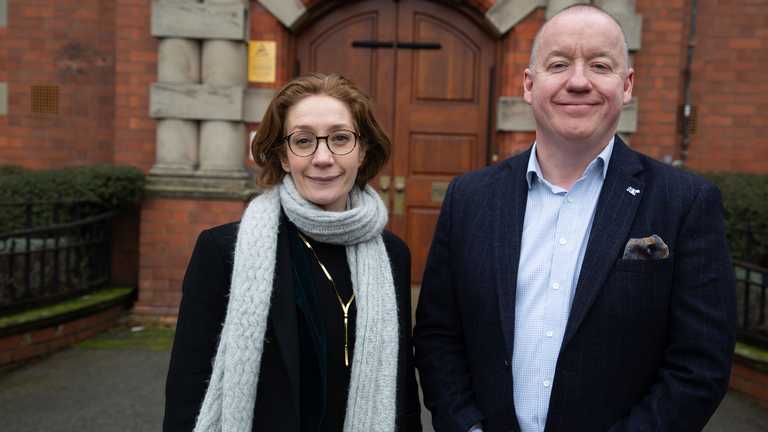

Loading search...
Loading search...
Loading site search...
Loading site search...
Loading site search...
Loading...
Loading site search...
Loading site search...
Posted 27 March 2013
Following the world food price spikes in 2008 concern has been raised in the corridors of power about food security, but someone, somewhere seems to be missing the point. What about water security? Without water there can be no food!

Ralph Early, Head of the Food Science and Agri-Food Supply Chain Management Department at Harper Adams University, takes a look at the issue of water security after marking World Water Day 2013.
“Water is something that most people in Britain think little about: until, that is, the water companies announce restrictions on the use of hosepipes for gardens and washing cars.
After the summer of 2012, with continual news headlines telling of torrential rain and flooding, it is hard to see that maintaining an adequate water supply is really a problem for the country. Of course, just as last year’s excessive rainfall came as something of a surprise, following a very prolonged dry period, we could just as readily be launched into severe drought by the anthropogenic global climate change that we are now witnessing.
Water is not just a precious resource. It is an essential resource. As our ancestors evolved from aquatic to terrestrial life-forms they took the sea with them, and as human beings our bodies contain around 60 per cent water. Water is the medium in which much of the cellular biochemistry that creates and maintains life occurs. Without it life will certainly cease. Yet, do we hear our politicians and business leaders talking about national water security?
Following the world food price spikes in 2008 concern has been raised in the corridors of power about food security, but someone, somewhere seems to be missing the point. What about water security? Without water there can be no food!
In Britain we appear to have a lot of water – most of the time! But one thing we are really good at is wasting water. Of course we are also really good at wasting much of the food we buy, which has been produced using water. Indeed, how many people even think about how much water goes into producing the food they eat? In 21st century, obese Britain, it is shameful the way we take food for granted. It is doubly so the way we don’t even think about how much water we waste, both directly – leaking water mains, letting taps run, filling the bath too full, etc – and indirectly – buying food we don’t eat, then throwing it away.
Consider this: to produce 1 kg of boneless beef takes about 6.5 kg of grain, 36 kg of roughage and 155 litres of drinking water for the animal; but the water requirement to produce the animal feed is around 15,300 litres. This means that the water required to produce 1 kg of beef is some 15,500 litres. Take another foodstuff: carbonated cola beverage, which takes around 3 litres of water to process 1 litre, not counting the water involved in growing the sugar used to sweeten it. Whatever we eat or drink there is a hidden water cost. This is ‘virtual water’, the water that we don’t see, don’t consume with the food and certainly don’t think about.
As a country with a population heading towards 70 million we are arguably overpopulated; especially when one considers that we are only around 60 per cent self-sufficient in food. We rely on other countries to help feed us. We also rely on their water, which may be in short supply. It takes about 237 litres of water to produce 1 kg of lettuce and a staggering 2,277 litres to produce 1 kg of dates. When we import food this saves us water. It can also provide much needed trade for poor countries. But, if we are too greedy, in return for valuable imports we risk exporting drought. A fine balance has to be maintained. If we are to be good citizens in a world where food will become short as the global population heads towards 9 billion in 2050, we must produce more of our own food. Importantly, if we are to do so, we must preserve as much of our own water as possible, and use it wisely.”
To learn more about World Water Day 2013, which was held on March 22, visit http://www.worldwaterday.org










We use cookies to ensure that we give you the best experience on our website. If you continue without changing your settings, we'll assume that you are happy to receive all cookies on the website. However, you can change your cookie settings at any time.